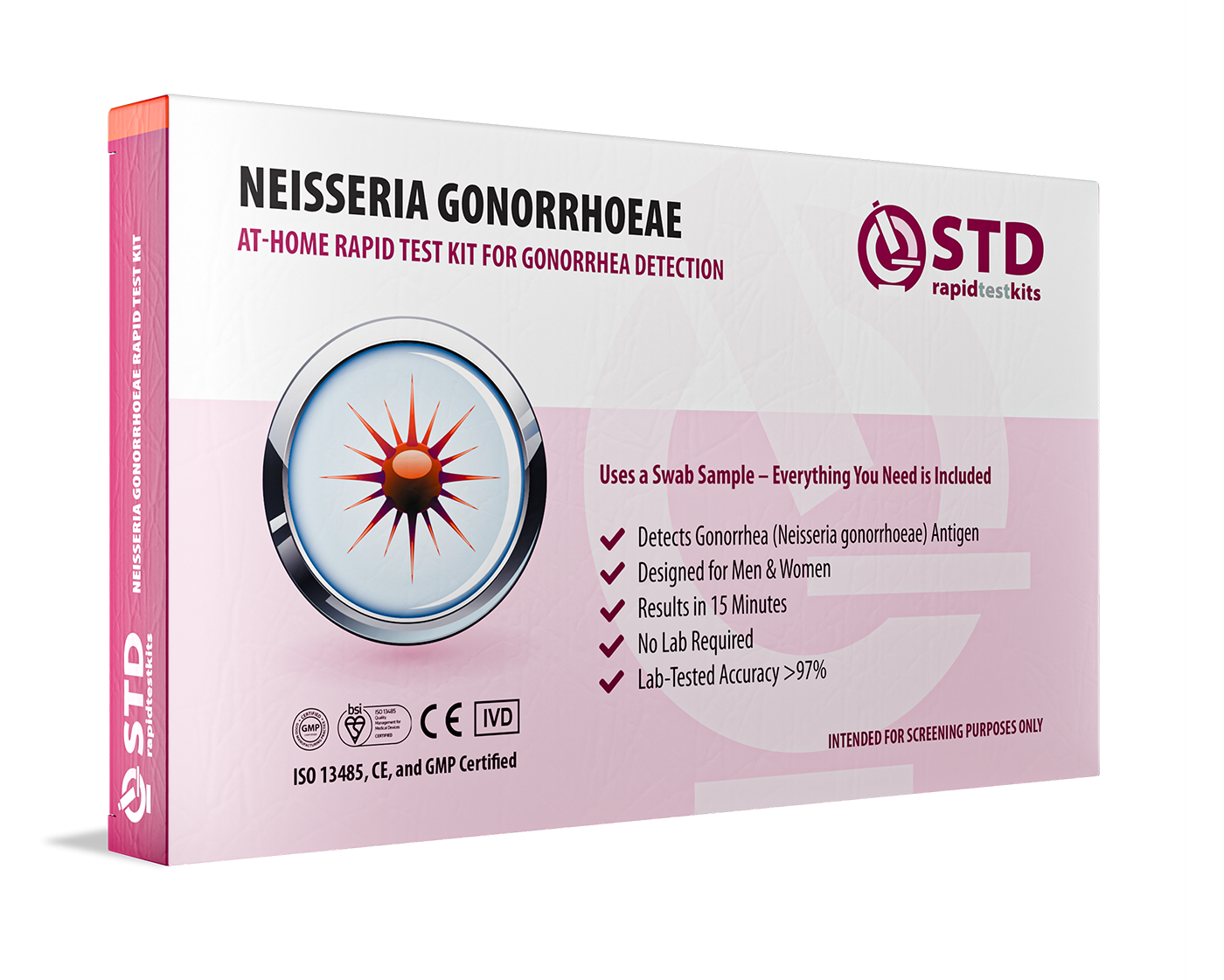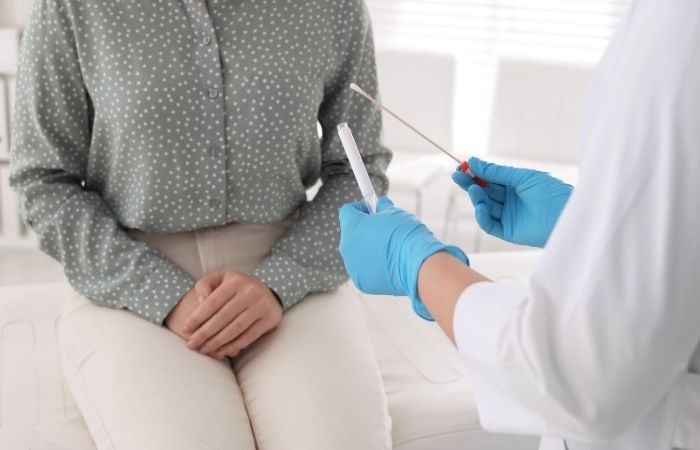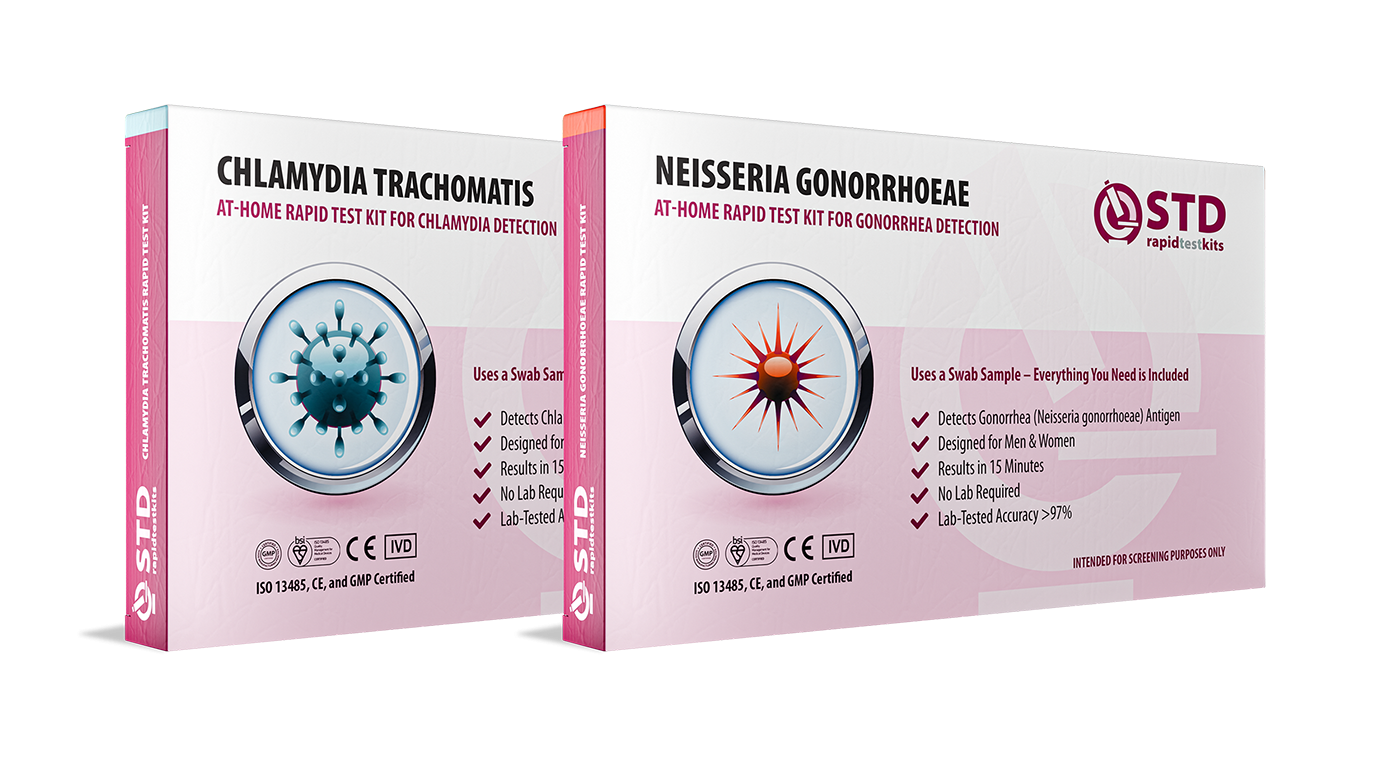Quick Answer: Gonorrhea can live in the throat without symptoms and still be contagious. It spreads through oral sex, kissing (rarely), and can become resistant to treatment. If you've had unprotected oral contact, testing your throat is crucial, even if you feel fine.
Why Throat Gonorrhea Is Easy to Miss
The most dangerous STDs aren’t always the ones that hurt. In fact, the scariest are often the ones that don’t. Throat gonorrhea, or “oropharyngeal gonorrhea”, rarely announces itself. You might have a mild itch. You might feel nothing. Or you might confuse it for something harmless like a cold or post-nasal drip.
This silence isn’t a fluke, it’s part of what makes this infection so tricky. According to the CDC, oropharyngeal gonorrhea is often asymptomatic, especially in people who receive oral sex rather than give it. That means your partner could have it in their throat and pass it to you, even if they swear they’re clean and feel totally normal.
And unlike genital gonorrhea, which tends to produce noticeable discharge or burning, throat infections might show up as:
a scratchy sensation that lingers after a hookup, a sore spot that won’t quit even with lozenges, or that tickle you keep clearing your throat for during Zoom meetings. Most people don’t connect those dots to an STD, and they rarely get tested unless someone else tests positive first.
How Gonorrhea Gets in the Throat (And Who’s Most at Risk)
Any kind of unprotected oral sex, giving or receiving, can pass gonorrhea from one person’s genitals to another’s mouth, or vice versa. But here’s where things get more complicated. Because it doesn’t always stay in one place.
Let’s say Jamie hooks up with someone new and gives unprotected oral sex. Jamie doesn’t use condoms for oral, most people don’t. If their partner has genital gonorrhea, Jamie can get it in the throat. But it might not show up in a urine test. It might not feel like anything. Still, Jamie could unknowingly pass it to someone else through kissing, oral, or rimming.
This is especially common in:
– Men who have sex with men (MSM), especially those with multiple partners – People in open relationships or who engage in anonymous encounters – Sex workers or those with oral-genital exposure in their work – People who believe oral sex is “safe enough” and skip condoms or testing
But let’s be clear: this is not about “risky lifestyles.” Throat gonorrhea happens to monogamous partners, married couples, and cautious daters too. All it takes is one encounter, and the infection can sit quietly for weeks or months.

People are also reading: STD Stigma in the LGBTQ+ Community: Progress, Pain, and Persistence
Table: How Throat Gonorrhea Compares to Other Infections
| Condition | Common Symptoms | Transmission | Detected by Standard Urine Test? |
|---|---|---|---|
| Throat Gonorrhea | Mild sore throat or no symptoms | Oral sex, rimming, kissing (rare) | No – requires throat swab |
| Strep Throat | Severe sore throat, fever, white patches | Airborne, coughing, sneezing | Not an STD test – separate swab needed |
| Herpes (Oral) | Painful blisters, tingling, crusting | Kissing, oral-genital contact | No – requires visual exam or PCR swab |
Figure 1. Comparing sore throat causes that may be mistaken for each other. Throat gonorrhea often flies under the radar, unlike strep or herpes which present more clearly.
Check Your STD Status in Minutes
Test at Home with RemediumGonorrhea Test Kit

 For Men & Women
For Men & Women Results in Minutes
Results in Minutes No Lab Needed
No Lab Needed Private & Discreet
Private & DiscreetOrder Now $33.99 $49.00
Why Throat Gonorrhea Is Becoming More Dangerous
It’s not just silent, it’s evolving. In 2024 and 2025, health authorities began sounding alarms over strains of gonorrhea that no longer respond well to antibiotics. Dubbed “super gonorrhea,” these drug-resistant strains are especially hard to treat when they take root in the throat.
Here’s why: the back of the throat is a tough battleground. Saliva, biofilms, and other bacteria all compete for space, making antibiotics less effective. According to WHO and peer-reviewed studies, oropharyngeal gonorrhea is more likely to survive partial treatment, mutate, and pass on those resistant genes.
This isn’t just a theoretical problem. In the UK, Australia, and parts of the U.S., clusters of resistant gonorrhea have already forced doctors to use last-resort antibiotics, medications that weren’t even developed for routine STD use. One wrong prescription or skipped dose, and the bacteria adapt.
Translation? The throat may soon be ground zero in the global battle against untreatable gonorrhea.
Case Study: “I Thought It Was Post-Nasal Drip”
Aaron, 28, works in tech and keeps a spreadsheet for everything, even his sexual health. He gets tested every three months. But when his partner tested positive for gonorrhea, Aaron’s initial urine test came back clean. It wasn’t until a provider asked, “Did you get a throat swab too?” that things clicked.
“I had this nagging tickle in my throat for weeks,” he says. “But I didn’t think anything of it. I assumed it was allergies.”
The throat swab confirmed it: oropharyngeal gonorrhea. Aaron had been carrying, and possibly spreading, the infection, despite being “responsible.” He’d never skipped testing. But until that moment, he hadn’t realized the importance of testing his mouth too.
Now he does all three: throat, urine, and rectal swabs when relevant. And he tells his friends to do the same.
Why Standard Testing Often Misses It
Here’s the problem: most STD tests don’t automatically check your throat. Unless you specifically request an oral swab, or unless a provider knows your sexual history in detail, it won’t happen. And even if you’re using an at-home test kit, not all options include a throat swab by default.
This creates a testing blind spot. People think they’re getting “tested for everything,” but in reality, they’re only testing one site. If you’ve had oral sex, even once, your mouth should be on that list. Especially if you gave oral and your partner’s status is unknown.
Some clinics still don’t offer throat testing unless you ask. Some doctors don’t bring it up unless you do. And if you’re embarrassed to mention the details of your sex life? You might walk out with a clean bill of health... and a hidden infection still in play.
This isn’t fearmongering, it’s about accuracy. You can’t treat what you don’t test. And you can’t test what you don’t swab.
Table: Do I Need a Throat Swab?
| If You’ve Done This... | You Might Need This Test | Is It Standard? |
|---|---|---|
| Given oral sex to someone with a penis | Throat swab for gonorrhea, chlamydia | No – must be requested |
| Performed oral on someone with a vagina | Throat swab for gonorrhea | No – must be requested |
| Kissed someone with an active cold sore | Swab for oral herpes (HSV-1) | No – not included in routine STD panel |
| Used a test kit without throat instructions | Check for oral coverage or re-test | Varies – check product details |
Figure 2. Common sexual behaviors and which tests are needed. Many people who test regularly are still missing site-specific infections like throat gonorrhea.
How to Get Tested (At Home or In Clinic)
If your last STD test didn’t involve a throat swab, you can fix that. Many clinics now offer triple-site screening, urine/genital, rectal, and oral. You just need to ask. Don’t assume it’s included. Don’t wait for symptoms. Bring it up clearly. You won’t shock anyone, they’ve heard it all.
Prefer privacy? Some at-home STD test kits now include oral swabs for this exact reason. Choose kits that clearly say “triple-site” or “includes oral testing” in the description. If you’re not sure, ask the seller or order a combo kit with separate swabs for each area.
Just like brushing your teeth, testing your throat should be a routine part of adult life. It’s fast. It’s painless. And it could keep your partners, and yourself, safer in the long run.
If your head is spinning from symptom guesswork and partner anxiety, this discreet combo kit offers quick answers with lab-grade accuracy. Order, swab, and get peace of mind in days.

People are also reading: The Shame Spiral: Why STD Diagnosis Still Carries Stigma
The Link Between Shame, Silence, and Super Gonorrhea
We need to talk about stigma. Because silence is one reason gonorrhea is evolving into a bigger threat. People are scared to talk about oral sex, scared to admit they don’t use protection, scared to ask for throat tests. And when people stay quiet, bacteria don’t. They adapt. They spread. They outsmart the antibiotics.
Gonorrhea doesn’t care if you’re straight, gay, monogamous, experimental, or barely sexually active. It only cares about access, and if no one’s swabbing the throat, it wins.
So if you’re reading this with a pit in your stomach, maybe you remember a hookup, or maybe you’ve had a sore throat for weeks, take a breath. You’re not dirty. You’re not dumb. You’re not doomed. But you might be overdue for a throat swab.
And getting one? That’s not weakness. That’s power.
Check Your STD Status in Minutes
Test at Home with RemediumChlamydia & Gonorrhea Test

 For Men & Women
For Men & Women Results in Minutes
Results in Minutes No Lab Needed
No Lab Needed Private & Discreet
Private & DiscreetOrder Now $49.00 $98.00
For all 2 tests
When to Retest, and When to Worry
Most throat infections clear with the right antibiotics, but not always the first try. Because of how gonorrhea behaves in the throat, some providers recommend follow-up testing 7 to 14 days after treatment. Especially if symptoms linger, or if your partner wasn't treated at the same time.
Let’s say you’re treated with a single dose of ceftriaxone, as per CDC guidelines. But ten days later, your throat still feels weird. Maybe you still have a dry cough or some scratchiness. That’s your cue to retest, don’t assume the meds worked just because you took them.
If you weren’t treated at all, maybe your test was inconclusive, or maybe you didn’t test your throat in the first place, watch for these signs:
a sore throat that persists or worsens, a burning sensation when swallowing, swollen lymph nodes under your jaw, or a bad taste in your mouth not linked to dental issues. These can all be late-stage signs that the infection is digging in.
Retesting is never overkill. It’s smart. It’s safer. And it’s one of the few ways to stay ahead of super gonorrhea before it stays ahead of you.
Privacy, Discretion, and Testing from Home
If you’ve ever put off getting tested because the clinic felt too public, too awkward, or too far away, you’re not alone. The shame around STDs, especially ones involving oral sex, runs deep. But it doesn’t have to block your access to care.
Today, you can swab your own throat in the comfort of your home, pop it into a pre-labeled envelope, and get results in as little as 2–5 business days depending on the lab. No waiting rooms. No awkward conversations. Just clarity, shipped discreetly to your door.
Shipping labels don't have any information on them. The packaging for returns is blank. Your results are safe. And the best part is that you decide who sees them. STD Rapid Test Kits give you options that put both privacy and accuracy first, whether you live in a rural area, a shared apartment, or just need to keep things private.
What Happens If You Test Positive?
First: don’t panic. Throat gonorrhea is treatable. Most cases respond to a single antibiotic injection, followed by careful monitoring and partner notification. But you’ll want to act quickly. The longer you wait, the higher the risk of spreading it or developing resistance.
Let’s walk through it:
Say your test comes back positive. You’ll contact a provider or telehealth service to confirm treatment options. In many areas, treatment is free or low-cost. You’ll likely receive ceftriaxone and possibly azithromycin, depending on local guidelines and resistance data.
Then, you’ll tell your partner, or partners. This can be hard. Scripts help. So do anonymous notification services. And yes, it’s awkward. But it’s also part of keeping yourself and others safe.
Once treated, you should avoid all sexual activity (oral, kissing, etc.) for at least seven days, and until all partners have been treated. Then, consider a follow-up throat swab to confirm the infection is truly gone.
Testing your partner(s) is just as important. If you’re not sure how to bring it up, a discreet testing kit delivered to their door might say what words can’t. You can even order one for them right here.
FAQs
1. Can you really get gonorrhea just from oral sex?
Yes, and it happens more often than people think. If someone has gonorrhea genitally and you go down on them without protection, the bacteria can land in your throat. No penetration required. No big, dramatic moment either. Sometimes it’s just one quick hookup, and boom, it’s there.
2. What does gonorrhea feel like in your throat?
Honestly? Nothing. That’s the catch. Some people feel a scratchy throat, like allergies or dry air. Others don’t notice a thing. It doesn’t usually hurt like strep or come with fever. That’s why it hides so well, it plays quiet and spreads anyway.
3. Will my regular STD test catch a throat infection?
Not unless your provider or test kit includes a throat swab. Most “standard” STD tests only check urine or genital swabs. So even if you get tested and think you're all clear, your throat might still be carrying something.
4. How soon after oral sex should I test?
Wait at least 7 to 14 days for the most accurate results. Testing earlier might give you a false negative because the bacteria hasn’t built up enough to detect. If you’re feeling nervous right after a hookup, you can test early, but be prepared to retest later if symptoms show up.
5. Can I pass it through kissing?
Possibly, but it’s rare. The CDC says kissing is low-risk for gonorrhea, but some research suggests deep, tongue-heavy kissing might do it if the bacteria is already in your throat. Still, oral sex is the bigger risk by far.
6. I got antibiotics for something else. Could that have cured it?
Maybe, maybe not. Some antibiotics can reduce the bacteria load, but that’s not the same as full treatment. Partial dosing can actually help gonorrhea learn to resist meds. Unless the antibiotic was specifically for gonorrhea, don’t count on it.
7. I still feel off after treatment. Should I be worried?
If your throat still feels weird a week or two after treatment, definitely retest. It might just be irritation, but it could mean the infection didn’t fully clear, especially with resistant strains circulating. It’s not overkill. It’s smart.
8. Will people judge me if I ask for a throat swab?
Real talk: nobody cares. Providers have heard it all, and many will actually respect you more for knowing your risks. You’re not the first person to request it, and you sure won’t be the last. Own it. It’s your health.
9. Can I get throat gonorrhea from someone who had no symptoms?
Yes. Most people with throat gonorrhea have zero symptoms. So even if your partner “felt fine,” they could’ve still passed it along. That's why testing is so important, even when nothing seems wrong.
10. Do at-home test kits include throat swabs?
Some do, and they’re a game changer. Look for combo kits that include throat, urine, and sometimes rectal swabs. Just make sure the one you order says “oral” or “throat” testing on the box. Don’t assume, it’s worth double checking.
Before You Assume It’s Nothing, Get Checked
It might just be allergies. It might be nothing at all. But if you’ve had unprotected oral sex, even once, it might also be a silent STD hiding in your throat. And if it’s gonorrhea, ignoring it won’t make it go away.
You deserve answers, not guesses. Throat testing is a simple but powerful step, whether you're scared, curious, or just being safe. Not because you're careless, but because you're responsible. This isn't about being ashamed. It's all about being clear. It's about safety. It's about being in charge of your health before a small problem turns into a big one.
Don’t wait and wonder, get the clarity you deserve. This at-home combo test kit checks your throat, genitals, and rectum in one discreet package.
How We Sourced This Article: We combined current guidance from leading medical organizations with peer-reviewed research and lived-experience reporting to make this guide practical, compassionate, and accurate.
Sources
1. CDC – Gonorrhea Information
2. World Health Organization – STI Fact Sheet
3. Planned Parenthood – Gonorrhea Overview
4. Gonococcal Infections Among Adolescents and Adults – CDC
5. About STI Risk and Oral Sex – CDC
6. Gonorrhea – Symptoms & Causes – Mayo Clinic
7. Neisseria gonorrhoeae Antimicrobial Resistance – NCBI PMC
10. The Staying Power of Pharyngeal Gonorrhea: Implications for Public Health – NCBI PMC
About the Author
Dr. F. David, MD is a board-certified infectious disease specialist focused on STI prevention, diagnosis, and treatment. He blends clinical precision with a no-nonsense, sex-positive approach and is committed to expanding access for readers in both urban and off-grid settings.
Reviewed by: L. Herrera, RN, MPH | Last medically reviewed: October 2025
This article is just for information and should not be used as medical advice.










